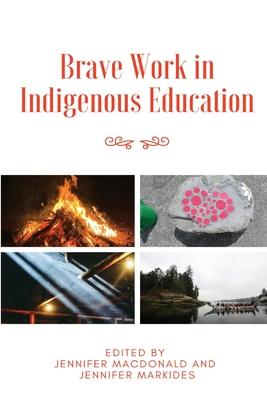In response to significant Indigenous rights and solidarity movements, and to the Truth and Reconciliation Commission of Canada's Calls to Action, all people are being asked to redress the wrongdoings of our shared past and to forge ethical relations anew. While decolonizing processes in Indigenous education can be different for everyone, all journeys are important. Scholars and practitioners are negotiating difficult and contentious terrain as they seek truths and disrupt deeply entrenched colonial ideologies. These educators are leading the way in reconciliatory practices and engaging Brave Work in Indigenous Education.
This edited-collection offers insights into the myriad ways both Indigenous and non-Indigenous educators are enacting Indigenous education in a variety of settings-in classrooms, on the land, in ceremony, with community, and more. The chapters are exemplars of the urgent work being done to decenter longstanding colonial narratives and to honour Indigenous Knowledges. Together, Elders, Knowledge Keepers, scholars, students, community members and other change-makers are creating opportunities to share, listen, learn, and heal the legacies of intergenerational traumas through education and action.
